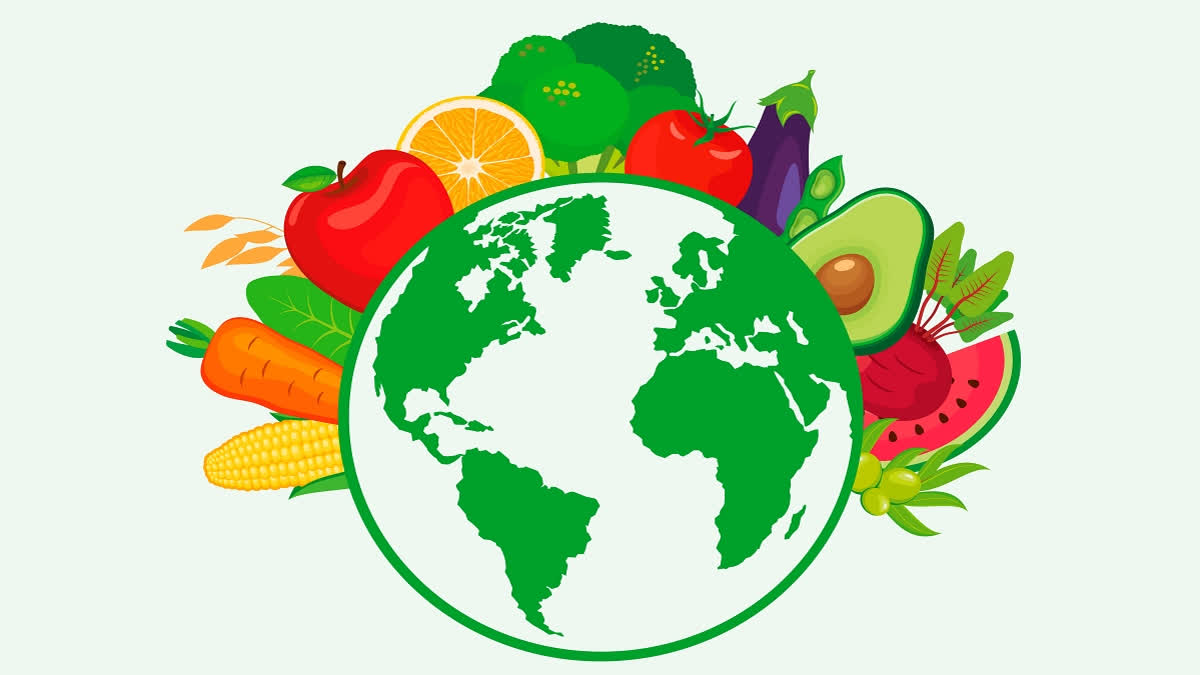Hyderabad: When it comes to food, humans are basically omnivores. An omnivore is an organism that regularly consumes a variety of materials, including plants, animals, algae, and fungi. But there are people who live exclusively as vegetarians for various reasons. October 1 is observed as World Vegetarian Day.
Significance: World Vegetarian Day is a way to encourage people to adopt an exclusively plant-based diet.
History: World Vegetarian Day was founded in 1977 by the North American Vegetarian Society (NAVS) and was endorsed by the International Vegetarian Union in 1978. NAVS launched World Vegetarian Day on October 1, 1977. It was endorsed by the International Vegetarian Union in 1978.
Different types of vegetarian diets:
Lacto-ovo vegetarian – Doesn’t eat meat but does eat eggs and dairy products
Vegan – Doesn’t eat meat products or any food that comes from animals
Raw vegan – Doesn’t eat foods cooked above 115 degrees F.
Macrobiotic– Eats only unprocessed vegan foods, including whole grains and fish occasionally
Pescatarian – The only meat they eat is fish
Flexitarian – Eat mostly a vegetarian diet but meat on occasion
Five Ways to Celebrate-
- Eat Vegetarian Meals on This Day
- Learn about the different kinds of vegetarian diets and the health benefits of eating a plant-based diet
- Feed your family a vegetarian meal or host a vegetarian potluck at work
- Share your vegetarian recipes on social media with #WorldVegetarianDay
- Watch a Vegetarian Documentary. Some of the famous documentaries include: Cowspiracy: The Sustainability Secret (2014), Earthlings (2005), Forks Over Knives (2011), Game Changers (2018)
Health Matters:
Weight loss: Eating an abundance of fruits and vegetables, legumes, nuts and seeds, whole grains, herbs and spices can lead to a healthier body weight.
Heart disease: By eating a vegetarian diet, you can reduce the risk of heart disease by about 50 per cent.
Diabetes: Plant-based foods tend to be high in fibre, low in saturated fats, and packed with antioxidants, which can prevent diabetes and possibly lower your blood sugar levels.
Reduce the risk of major killers such as Stroke and Cancer.
Vitamins and minerals: Get essential vitamins
Consuming more plant-based foods could be linked to lower rates of dementia, Alzheimer’s, and cognitive impairments.
How to Get the Necessary Vitamins and Nutrients as a Vegetarian or Vegan?
If you’re a vegetarian or vegan, make sure you:
Avoid foods that are high in sodium, added sugars and fats
Choose high-protein foods
Don’t eat too many carbohydrates
Get enough vitamin B12
Meet your calcium requirements
Opt for vitamin D-fortified foods
Consider an appointment with a registered dietician
Some Famous Indian Vegetarian Dishes:
Chole Bhature, Paneer Tikka, Dal Makhani, Baingan Bharta, Chilli Paneer, Pulao, Samosa, Dosa, Palak Paneer, Malai Kofta, Paneer Makhani, Pav Bhaji, Dum Aloo, Khandvi, Paneer Bhurji, Idli Sambar, Undhiyu, Sabudana Vada, Vada Pav and Panu Puri.



